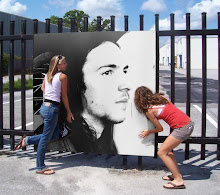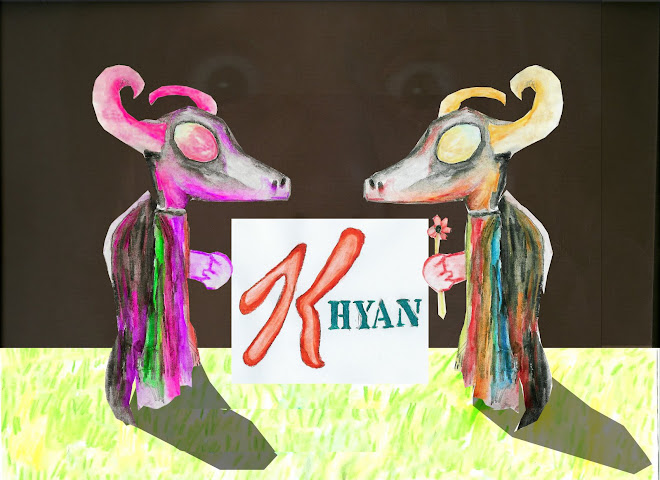In the university main house, in the hallway that visitors and prospective students are most often ferried down is a long wall smothered in framed photographs. Photographs from fifty years ago to the near present, of high achievers, and graduates, receiving various awards, medals, trophies and oversized cheques. In the centre of this hallway is the glass cabinet housing these accolades of student achievement, these embodiments of graduate brilliance. Valueless metal cups are inscribed all the way round and down with names that have lost all meaning, of dubious characters whose deepest impressions were left on these glorified containers. What promise these names must have once held, but where are they now? What kind of stories unfolded after these displays of heroic sport and grand intelligence?
Would there be the usual tales of marriage, children and the eventual divorce? From rising to the giddy heights of regional manager of a prominent paper company, to the mid-life crisis, that led to cashing in that old life in search of something new, young and dangerous. Or did these individuals live blessed lives? Was this merely the beginning, the first realisations of the kind of potential that they would learn to harvest?
I read the names, instantly forgetting them, as if they were the ingredients to recipes made up in the kitchens of talentless, yet enthusiastic cooks. They feel familiar, the kind of names you read in a phonebook, lumped together with thousands of others, all written in the same small and neat font. Impossible to distinguish from one another, they seem doomed to averageness. These impressions left on these unremarkable awards are just a blip in lives that quickly resumed normal paths, unexplained anomalies, but proudly recounted to future partners and offspring.
There is one recurring name, one name which draws the eye again and again, as if it were etched more deeply, and more conspicuously onto the awards: David Misen. It is my brother’s face that I see again and again, shaking the hands of the university principal and the heads of staff from various denominations of sport, English and philosophy. Everyone smiles in these pictures. They smile so broadly, it would seem impossible to link these smiles with the death of the most promising student of the university’s history. Looking at these pictures, no one could see anything but brilliance in that smile. No one could say that suicide made sense.
“Must be weird, seeing your brother everywhere,” says Natalie. She has crept up on me; I have no idea how long she’s been standing there – how long she’s been watching me watch my brother. How long have I been standing here?
“I’m used to it. There were plenty more of these at home.” Almost every picture we have of David is professionally shot, whilst he shakes the hands of important men. Men David earned respect from, even from a young age. I can’t think of any pictures that contain us together above the age of six.
“And what about you, are there many pictures of you at home?”
“I don’t think there is enough room.”
She smiles sadly at me, expressing not only her sympathy towards me, but my right to her sympathy. Natalie has an air of understanding everything you say, as if she’s not just hearing the words, and not just seeing what you want her to see when you express yourself, but also what you wanted to say, but felt too embarrassed to share. Somehow Natalie knows all that I want to hide, and simultaneously assures me that it is okay.
I wonder how well she knew my brother, and what she understood about him. Perhaps she knows something I don’t. “I had no idea David had left such an impression here. Though it doesn’t surprise me, it’s just…he never said.”
“I don’t think David thought too much of all this,” she points to the cabinet of applause, as if she thinks as little of it as David did. How well did she know him? How well did she understand him?
“It just makes me realise that I didn’t know him as well as I thought I did. Especially since he came here. We spoke occasionally online whilst he was away, but the last time I actually saw him, actually heard his voice was before he went away for his second year.”
“You only have to ask, David knew a lot of people, perhaps if you start asking, you’ll find what you’re looking for.”
“What I’m looking for? I don’t know what I’m looking for.”
“Answers?”
Subscribe to:
Post Comments (Atom)






No comments:
Post a Comment